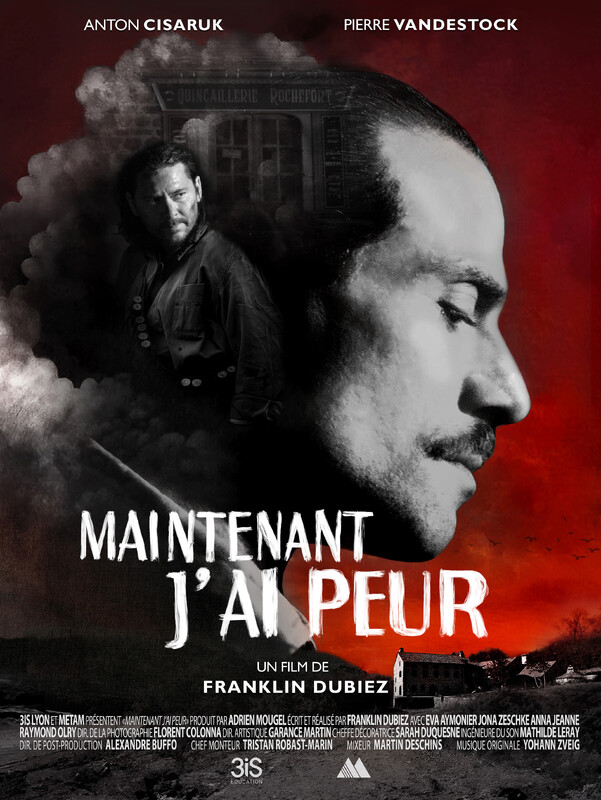
Court métrage 29:50 - action/aventure - France
Réalisé par / Directed by
Franklin Dubiez
2024
Synopsis : In 1940, the onset of World War II up to their hardware store will disrupt the lives of the Rochefort brothers, united by blood but divided by their beliefs. Antoine, the elder, aligns with Vichy, while Félix, the younger, joins the fight against the invader. In the chaos of a social fracture, Antoine and Félix will have to confront fear and fate.
"With ifs, we could put Paris in a bottle." I believe it's thanks to this two-letter word, "if," that I penned the lines of "Maintenant, j'ai peur" Because this word can raise the question that each of us has asked ourselves at least once in our lives: "If I had lived during World War II, what would I have done?" More than that, I believe it's this wonderful little word that opens the doors to dreams and stories, to imagination and questions. The idea for a film then began to make its way into my mind, a teenager sitting on the benches of history class or during family dinners in the evening. I developed a certain fascination for this dark period between 1939 and 1945 because I wanted to know, to experience what I would have done if I had lived through such events. To do this, I created two characters with opposing paths and ideas. Two brothers, bound by blood and love. The Rochefort brothers, Antoine and Félix. Our main character will be Antoine, the elder. A man who will fall into fascism through fear and hatred following traumatic events. I didn't want to tell the story of a smooth, virtuous Resistance hero but rather that of an ordinary man, like you, like me, who gives in to fear or anxiety by gradually joining extremism. Félix, the younger brother, will carry another message: that of freedom at all costs under the pretext of a free France. But as he will point out in the screenplay: "Freedom has a bitter taste." This film is intended to be intimate; it deals with the small stories within the grand narrative of history. I, therefore, want this to be reflected through a sober direction that serves the story's characters. I want the audience to become attached to the two brothers, to their personalities by giving them time to express themselves in front of the camera. This will be conveyed through small scenes of everyday life where they work, where they smoke, where they draw... Another challenge of the film is to anchor the narrative in a credible historical reality, whether it be through costumes, sets, props, ways of speaking, or thinking. The work on the image will, therefore, be essential to convey these two points: I'm thinking of a lot of natural light, of light but always present camera movements to add rhythm. I want the camera to adapt to the reality of the everyday lives of these 1940s characters. This reflection will be the same for the sound. The everyday lives of the two brothers, and more broadly of World War II, relied on radio transmissions. Secret or official. It is through this element that we will establish the diverging ideas of Antoine and Félix: one listens to Marshal Pétain, the other to General de Gaulle. More generally, the sound will adapt to the different sequences to seek out sounds specific to the era and the lifestyle of the characters from the Hardware store. I associate with this film strong notions that are precious to me. Those of Order and Chaos, of Security and Freedom. Each of the brothers represents one of these grand ideas. When they clash, a spark will fly, fanning the flames of a fraternal conflict. However, it's my deep conviction that the ashes of this duel can see the growth of a new symbol of balance and hope. Of reconciliation. Franklin Dubiez
Ce film est inscrit au marché du film.
Service offert lors de l'inscription.
Ce service est sous l'unique responsabilité des ayants droits, vous pouvez gérer ces paramètres dans votre "Espace Personnel" - Rubrique : "Industrie".